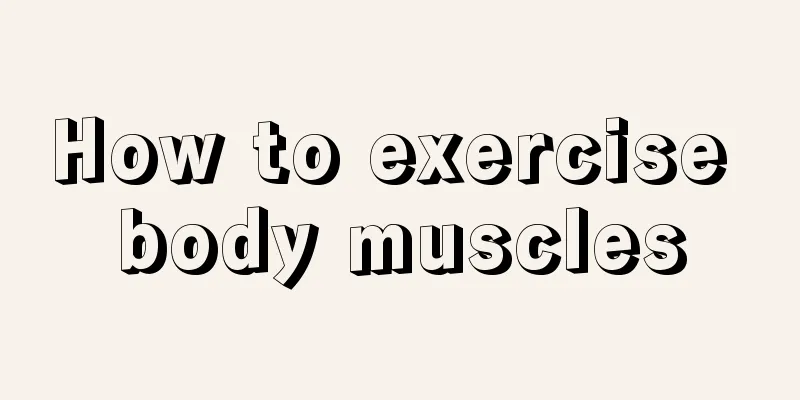How to do abdominal breathing exercises

|
To maintain good health, you need to pay more attention to it in your daily life. You should maintain healthy living and eating habits, and exercise more. Physical exercise can keep many of the body's functions well maintained, so that these functions will not decline. These exercises even include breathing exercises. So how do you do abdominal breathing exercises? Today we will introduce it to you. There are two main forms of human breathing. One is called thoracic breathing, also known as upper lung breathing, which is mainly accomplished by the contraction or relaxation of the intercostal muscles to raise or lower the ribs and widen or narrow the chest. Thoracic breathing is a shallow breathing, which can easily make people excited and even nervous. Generally, when people are nervous, they tend to breathe rapidly and their chests rise and fall constantly. Another type of breathing is called abdominal breathing, also known as diaphragmatic breathing, which is a deep breathing. It is mainly accomplished by the contraction or relaxation of the diaphragm, which causes the chest cavity to grow or shorten. The anterior-posterior diameter of a normal adult's thorax is shorter than its left-right diameter, which is conducive to the expansion of the thorax. Therefore, normal people mostly use thoracic breathing, or a combination of the two methods, which is called mixed breathing. For COPD patients, the chest is often barrel-shaped, with the anterior-posterior diameter of the chest being equal to or even greater than the left-right diameter. The activity of the lungs is hindered, and the usual thoracic breathing method cannot often inhale enough oxygen to meet physiological needs. If abdominal breathing is used instead, not only can the intercostal respiratory muscles get proper rest, but the respiratory function can also be improved. Therefore, relevant experts have compiled a set of "abdominal breathing exercises". If you do this twice a day for more than half a year, the diaphragm activity will be greatly increased, and symptoms such as shortness of breath will be greatly improved. Section 1 Abdominal Breathing The exerciser stands, puts one hand on the chest and the other hand on the abdomen, and does abdominal breathing. When you inhale, try to lift your abdomen without moving your chest; when you exhale, let your abdomen sink. Breathe rhythmically, with the ratio of inhalation to exhalation being 1:2 or 1:3. Breathe in through your nose and exhale through your mouth as if you were whistling. Section 2 Dynamic Breathing The exerciser stands with his arms raised and inhales; lowers his arms to the sides, leans forward slightly, and exhales. Section 3: Chest-holding Breathing: The exerciser stands with both arms raised and inhales; crosses both hands and holds the abdomen, leans forward and exhales. Section 4: Chest Compression Breathing: The exerciser stands with both arms raised and inhales; puts his hands on waist, thumbs facing backwards, presses the abdomen with the other four fingers, leans forward and exhales. Section 5 - Knee-hugging Breathing: The practitioner stands with both arms raised and inhales; bends one leg towards the abdomen, hugs the bent leg with both hands and exhales. Section 6: Bend sideways, hug knees and breathe. The practitioner stands with legs apart, arms raised, and inhales; first turn to the right, bend the right lower limb, straighten the left leg, hug the right knee with both hands, compress the abdomen, and exhale. Bend to the left again and do the same. Section 7 Squatting and Breathing The exerciser stands with feet together, arms raised, and inhales; leans forward, squats, hugs knees with hands, and exhales. Perform the above breathing methods 4 to 8 times. Section 8: Dynamic Breathing Same as Section 2. Ending section The exerciser stands. (1) March or walk on the spot. (2) Swing your arms back and forth, kick your legs, and relax the joints of your limbs. The above breathing exercises can be performed 1 to 2 times a day. Abdominal breathing exercises should be performed according to the methods introduced above. This will result in better exercise results. The abdominal breathing method can greatly improve the body's lung capacity. It can also provide better help to the body's stomach, intestines, liver, gallbladder and other organs. This is very effective for health care. |
<<: What is the reasonable time for exercise?
>>: What are some exercises to train your waist?
Recommend
How to choose a treadmill?
When purchasing goods, most people will first und...
Will running in the morning help you lose weight?
When many young friends feel that they are gettin...
How to quickly tighten the muscles all over the body?
There is a group of people in life who are not ve...
How to do hip-tightening exercises?
Nowadays, many people have sagging and loose butt...
What is the correct posture for push-ups?
Push-ups are a very common fitness exercise in da...
What should girls pay attention to when running to lose weight?
Many people use running to lose weight, but they ...
How to build muscle quickly?
A good figure is not easy to come by, especially ...
What is sit-ups?
Maybe we all do some sit-ups regularly, but we do...
Which is better, skipping rope or running?
Exercise is the best way to lose weight. There ar...
What are the precautions for strength training?
Strength is something that a person must possess....
How to train 8-pack abs
Abdominal muscles are very attractive, especially...
How to reduce fat on buttocks and hips
Obesity is the most annoying thing in people'...
Free for you! The British princess's yoga weight loss method
We always feel that the lives of celebrities are i...
What are some aerobic exercises for men?
According to authoritative surveys by experts, as...
What are the benefits of sit-ups for fitness?
Modern people pay more and more attention to thei...









